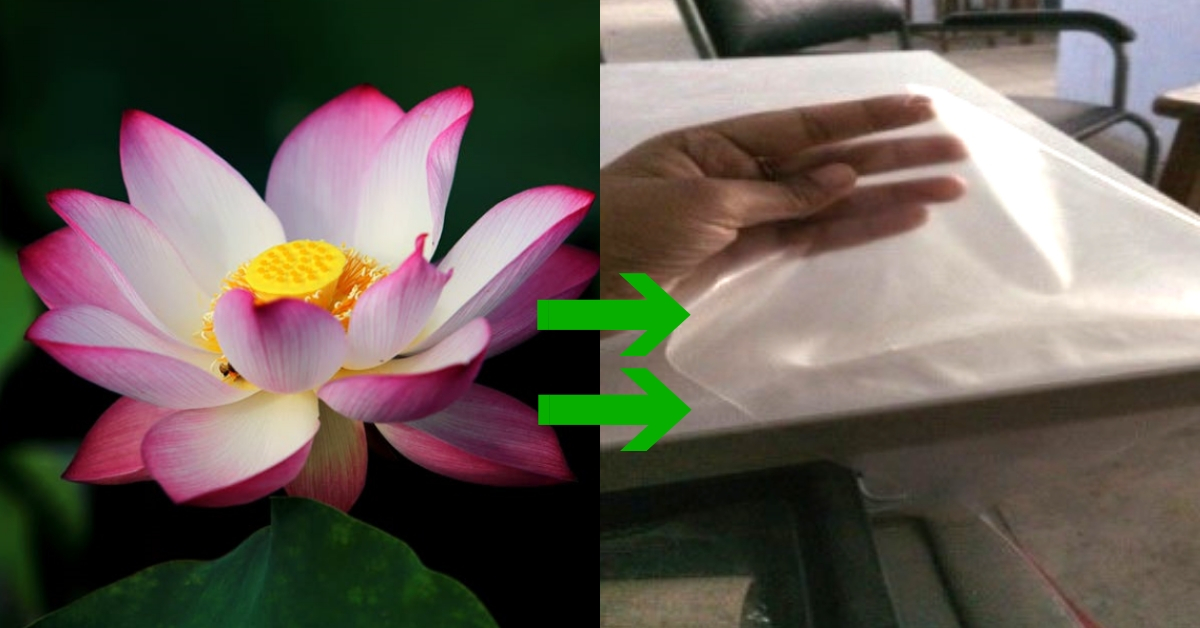Starch from Lotus Stem, Whey & Isabgol: Researchers Develop Biodegradable Film
“To minimise the use of petroleum-based plastics, there has been an increase in the research to develop biodegradable packaging materials using natural agro-based polymers.”

Indian researchers have developed a biodegradable film using lotus stem starch, whey protein concentrate, and psyllium husk that has high structural integrity and low solubility.
Starch can form continuous matrix and has been considered an important polymer due to low cost and renewability. But films made from starch alone have low mechanical strength and high water vapour content. In this study, researchers used starch along with whey protein and psyllium husk (isabgol) to make a biodegradable film.
The stem of lotus plant was used as a source of starch.
It contains 10 to 20 percent starch component of total fresh weight of stem. Studies also show that different chemical modifications to starch can improve its physical, barrier, mechanical, and form properties. In this study, the researchers performed two modifications to lotus rhizome starch: oxidation and cross-linking.

Whey protein is a by-product of cheese manufacturing. The polymer interaction between protein and starch can create a continuous film that has improved properties. Psyllium or Isabgol has a highly gelatinous or viscous consistency and has been used as an ingredient to develop films.
Also Read: IIT Guwahati Folks Create Superhydrophobic Coating That Mimics Lotus Leaves!
“To minimise the use of petroleum-based plastics, there has been an increase in the research to develop biodegradable packaging materials using natural agro-based polymers”, said Charanjit S Riar, scientist at Sant Longowal Institute of Engineering & Technology (Punjab) and a member of the research team.

The biodegradable film was made in two steps. The psyllium husk was first kept in water for 30 minutes, then heated in boiling water for 20 minutes, cooled and blended with whey protein, rhizome starch, and glycerol. The whole mixture was heated at 90 degrees and then poured in Teflon coated moulds. The moulds were then heated, peeled off and stored in special containers to prevent exposure to moisture.
Different properties of these films were then measured to assess it. Thickness is an important parameter used to infer the mechanical and barrier properties of a film. The films made with modified starch (oxidised and cross-linked) were thicker, had higher moisture content and tensile strength, and lower solubility compared to films made with non-modified starch.
“These films are white and transparent and can be used to visualise the products that are packaged, hence promoting higher product acceptability by consumer,” explained Riar. Such biodegradable films can find application in food coatings, encapsulations, probiotic coatings, drug delivery systems, and edible packaging materials.
The research team included Sakshi Sukhija, Sukhcharn Singh, and Charanjit S Riar (Sant Longowal Institute of Engineering & Technology, Punjab), and the study was published in Journal of the Science of Food and Agriculture. (India Science Wire)
Representational feature image credit: Pexels.
Like this story? Or have something to share?
Write to us: [email protected]
Connect with us on Facebook and Twitter.
If you found our stories insightful, informative, or even just enjoyable, we invite you to consider making a voluntary payment to support the work we do at The Better India. Your contribution helps us continue producing quality content that educates, inspires, and drives positive change.
Choose one of the payment options below for your contribution-
By paying for the stories you value, you directly contribute to sustaining our efforts focused on making a difference in the world. Together, let’s ensure that impactful stories continue to be told and shared, enriching lives and communities alike.
Thank you for your support. Here are some frequently asked questions you might find helpful to know why you are contributing?


This story made me
-
97
-
121
-
89
-
167











